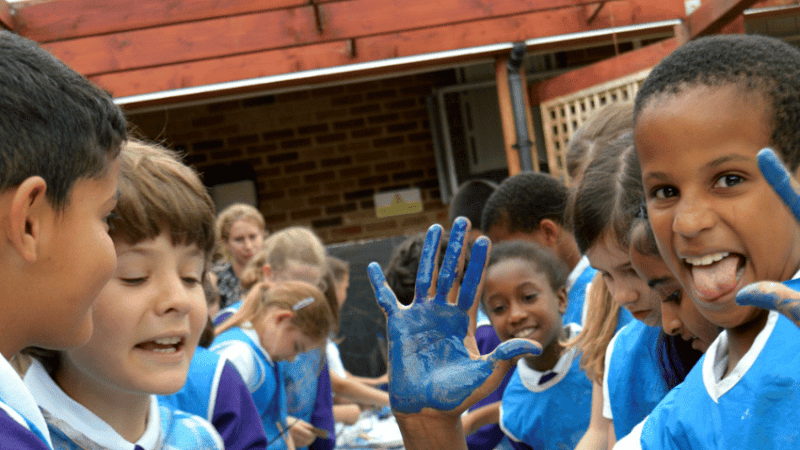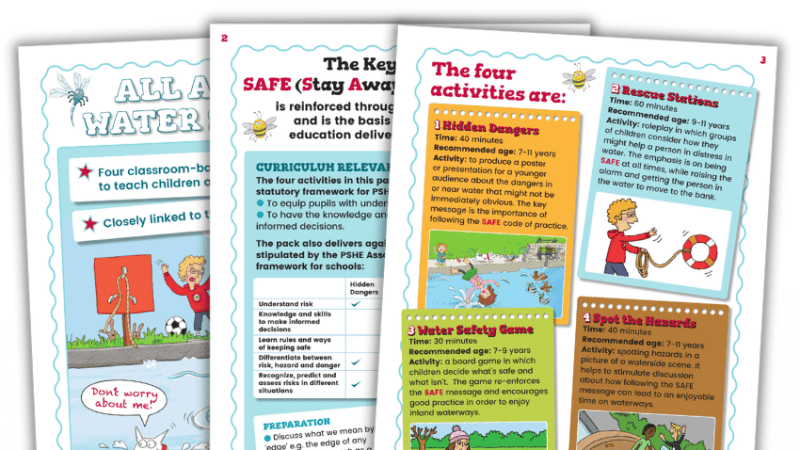How Nurseries Can Turn Type 1 Diabetes From A ‘Scary Condition’ Into Something Manageable

Caring for a child with a long-term illness can be challenging for nursery practitioners, but the issues are far from insurmountable, says Jonny Keen…
- by Jonny Keen

When a child is poorly it can be a traumatic experience for both the child and their carers. This is especially true for a condition like type 1 diabetes – a long-term problem that requires constant treatment in the form of injections. This is an unfortunate reality for thousands of children in the UK’s nurseries. Type 1 diabetes affects approximately one in every 10,000 children under five, and the number is rising. The condition is caused when the body becomes unable to produce insulin, which is the chemical that regulates sugar levels in the blood. If left untreated, it can cause fatal organ failure.
It is important to note that type 1 diabetes, unlike type 2, cannot be attributed to lifestyle. It is a condition that can affect the healthiest of children. Although easily treatable, diabetes does have to be carefully managed. This is where the injections come in. Insulin has to be injected into the bloodstream several times a day, and fingerprick blood testing must be regularly carried out to ensure blood sugar levels remain steady.
Additionally, fluctating blood sugar levels can make a child excessively hungry or thirsty, or cause emotional imbalance. Food is also problematic, as certain high-sugar foods have to be avoided. As you will no doubt appreciate – especially if you’ve witnessed tears when taking a child for her jabs at the doctors, or had to deprive a two-year-old of his favourite chocolate bar – type 1 diabetes can cause all sorts of problems. But whilst having a child with diabetes can at first seem like a huge and unmanageable problem, things often aren’t as bad as they first appear. Take the case of Jesse, a two-year-old boy who attends Holyrood Altrincham, the setting where I work. When he first started at the setting, like many other children, Jesse felt very scared and upset, and would attach himself to certain staff members.
Only a few weeks later, Jesse was diagnosed with type 1 diabetes and began receiving his insulin injections. Jesse’s mother, Hannah, was naturally worried about her son and how he might feel about his condition, but she decided that she wanted him to continue as normally as possible and to re-enter nursery as soon as he could. We arranged for Hannah to come into nursery and stay with Jesse for a session, so that she could help him readjust after the shock of a short stay in hospital, as well as administer his injections herself. Meanwhile, a specialist nurse visited the nursery to educate the staff on the symptoms and management of diabetes.
She demonstrated to us how to perform the finger prick blood test and showed two specific staff members how to give the insulin injection. She also explained that Jesse’s highly emotional behaviour over the previous few weeks could have been caused by his fluctuating blood sugar levels. It seemed the nurse may have been right about Jesse’s behaviour. Soon after receiving treatment, Jesse began to be much happier at nursery, and soon got used to having his blood test and injections or ‘jab jabs’. One thing that helped Jesse to settle and become used to his treatment was to involve him as much as possible in every stage of the treatment, and explain to him what was happening in each stage.
He knows that the insulin injection lasts for 10 seconds and counts along with staff. He understands that he has to have an injection before each meal to keep himself healthy, and will remind staff around meal times that he needs them. These things help Jesse feel normal and comfortable with the injections.
Meeting children’s needs
Another aspect that has helped Jesse cope so well is his relationship with the staff. In particular, one of our senior staff members, Justine Wallis, is a good friend of Hannah’s and so had met Jesse before he started at nursery. Justine is one of the staff members who gives Jesse his insulin injections and this helps him to feel more comfortable with the process.
The other staff have good relationships too, and talk to Jesse about his diabetes. It is important to have an open dialogue including the child on the subject. When adults are open and honest, the child will be less frightened – but if things are kept a secret or made a taboo, it can seem scary.
Mealtimes and snacks presents another issue for children with diabetes. Certain foods high in sugar cannot be consumed, which has caused some disappointment in Jesse’s case. Over the Christmas period he told his mum that he wanted to “throw his diabetes in the bin”, due to not being allowed a Milkybar! But there are plenty of things, including certain types of cake and biscuits, that diabetic children can safely eat, so replacements for a favourite treat can normally be found.
However, this isn’t the only issue with regards to eating. After an insulin injection it’s important for a child to eat plenty of carbohydrates to ensure correct levels of blood sugar. In Jesse’s case, this has meant having to regularly tackle meals twice as big as those the children around him are eating. Here, some extra one-to-one time does the power of good.
Managing food
Although Jesse sometimes finds it difficult to eat such a large amount of food, lots of praise and encouragement, as well as some fun and games, helps a lot. Jesse likes me to sit with him during dinner and pretend to eat his food. I take his fork, scoop up some food and lift it up to my mouth. Then, just as I am about to swallow it he snatches it away and eats it himself. It’s one of his favourite games! As with any special requirements, diabetes can be managed with only a little extra attention and care. Tailoring certain things within the nursery to fit individual needs, while being flexible, honest and open can be all it takes to turn a scary and difficult condition into something manageable.
I was struck by how well the situation had been managed when I first saw Jesse after Christmas and asked him if he still wanted to get rid of his diabetes. He replied that no, he didn’t. In fact, he had decided he wanted to keep it, injections and all, because it made him special!
The Facts
If your setting is caring for a child with type 1 diabetes, keep the following information in mind: • Type 1 diabetes is not caused by lifestyle and is not the fault of the parents.
• Children with diabetes can do anything any other child can! Going on holidays or trips isn’t a problem, as long as insulin is prepared in advance.
• NHS diabetes nurses can visit settings to ensure that staff are comfortable and knowledgeable about dealing with diabetes. They can demonstrate how to carry out insulin injections and blood tests.
• Although diabetic children should avoid some specific foods, there are plenty of different treats that diabetics can still enjoy!
For more information about Holyrood Nursery Altrincham, visit holyrood-nursery-altrincham.co.uk or follow @HAltrincham











